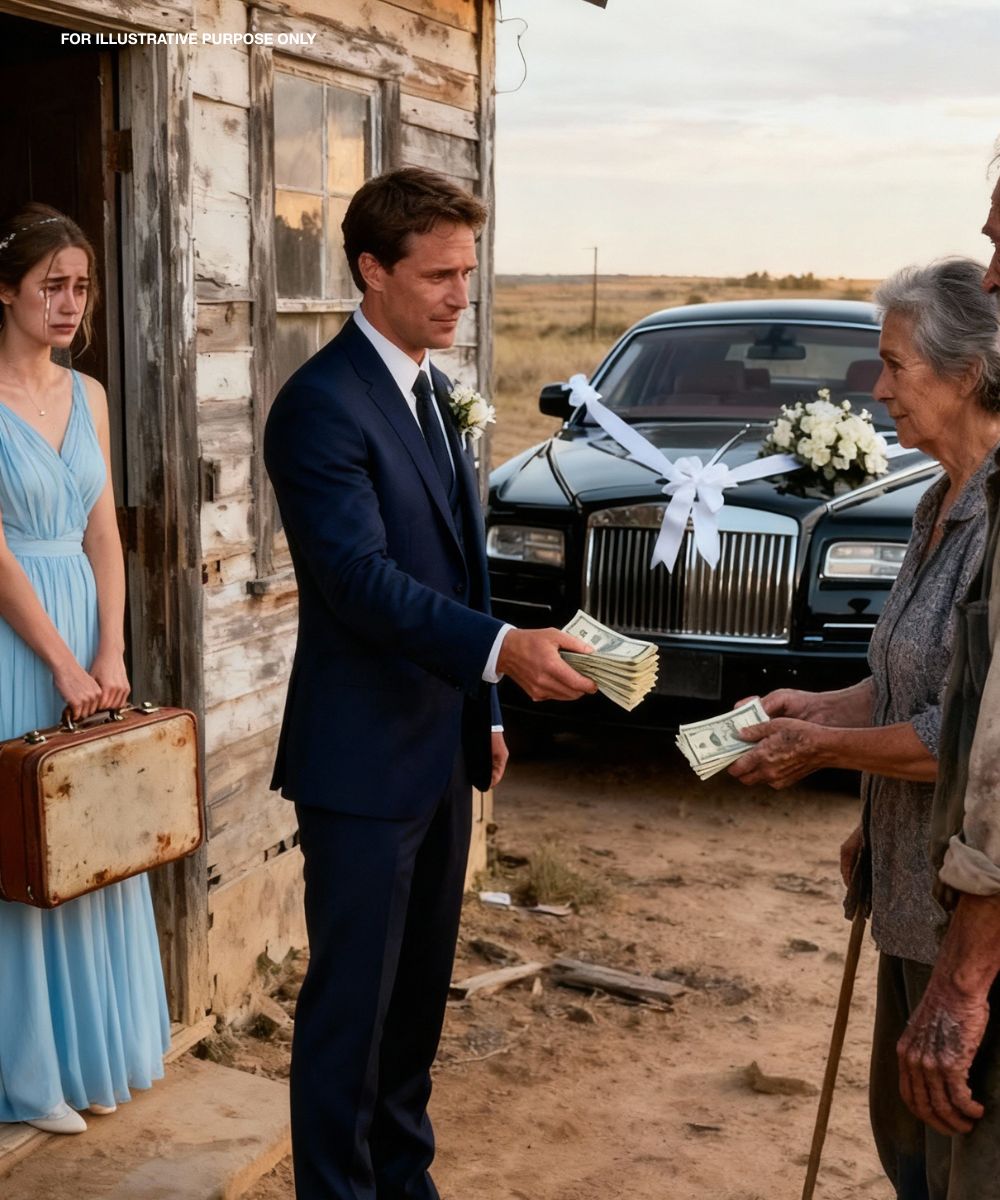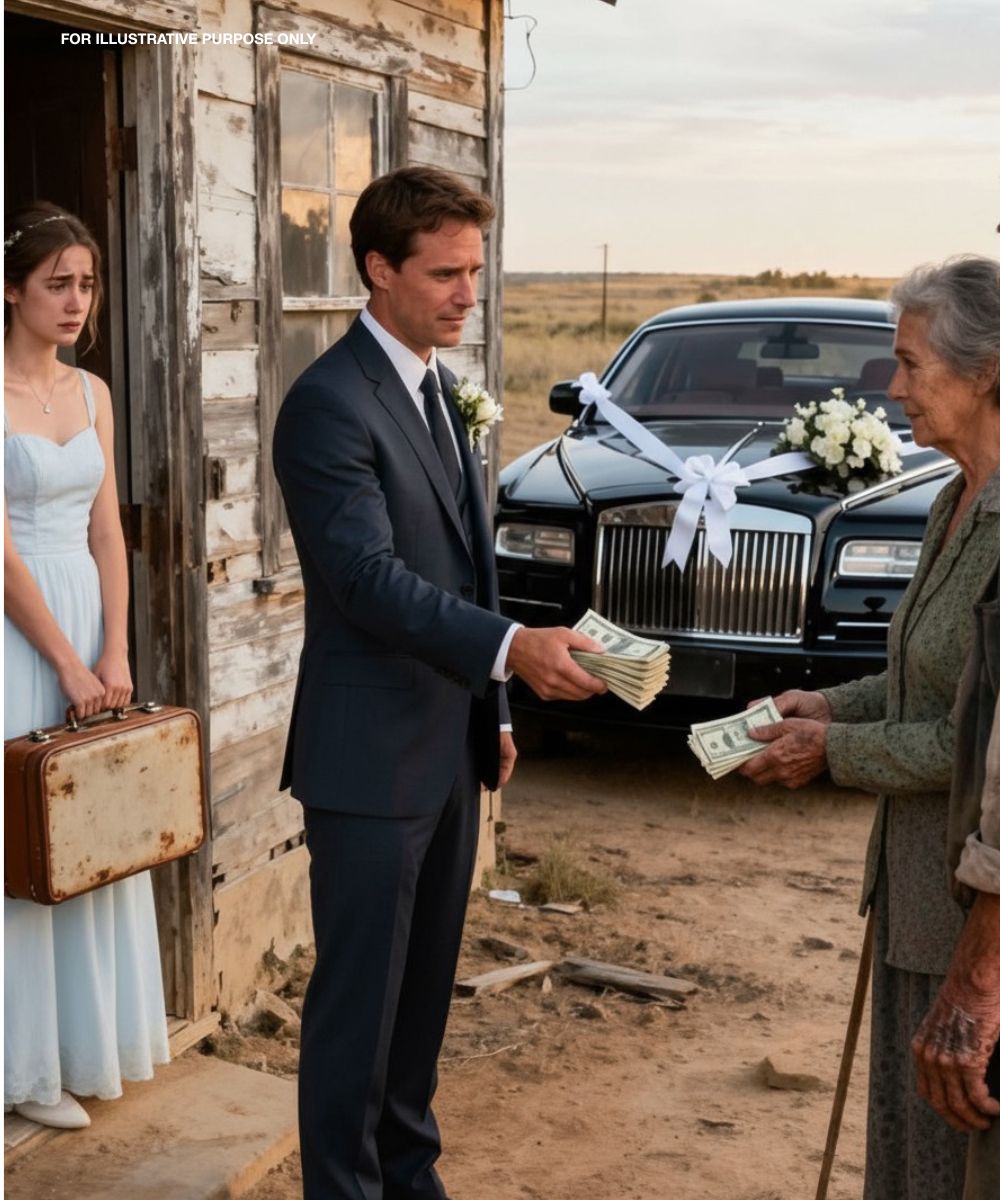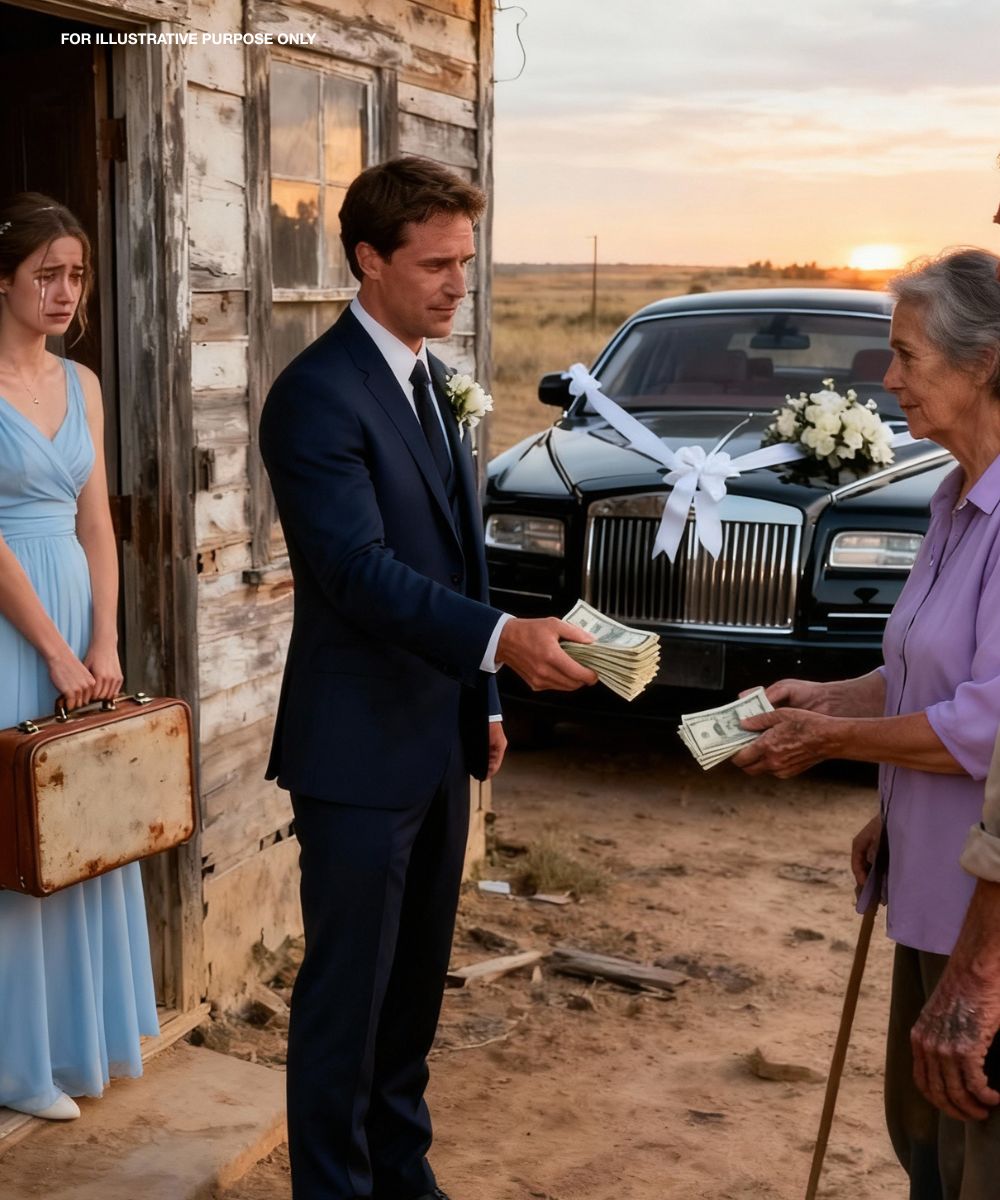In the serene farming community of Harmony Creek, Tennessee, during 1966, a young woman named Matilda Hayes lived under the rigid expectations set by her father. At just 20 years old, she had never ventured beyond the strict confines her father had established.
Walter Hayes, a stern and proud farm laborer, believed that a daughter’s worth equated to her obedience and how little she interacted with the outside world.
While her peers explored relationships, attended dances, and aspired for a brighter future, Matilda remained hidden from view, her days filled with chores and silence. She had never shared a word alone with a boy, nor felt the warmth of a gentle touch. Her existence was one of mere compliance rather than meaningful engagement.
That very year, an awful drought gripped Tennessee, resulting in shriveled crops and starving livestock. Walter lost his job, and soon their food supplies dwindled. They managed to scrape by on thin gruel. Matilda’s younger siblings went to sleep each night in tears, and her mother wept quietly in the mornings.
One evening, Matilda overheard a hushed conversation in the living room. A familiar name arose: Arthur Shaw. Everyone in the community knew of him as the wealthy recluse who owned a vast farm on the town’s outskirts. At forty-five, he was well-respected yet entirely alone.
When his visitor departed, Walter summoned Matilda to him, refusing to make eye contact.
“Matilda,” he began somberly, “Arthur Shaw has proposed marriage.”
Her heart sank. “But I don’t know him.”
“He is a good man,” Walter pressed on. “He’ll care for you—and for us.”
Her mother’s tear-filled eyes spoke volumes.
“Father,” Matilda whispered, nearly in tears, “how much?”
Walter said, “Two thousand dollars.”
That was enough to rescue them from despair.
In a trembling whisper, her true fear emerged: “Are you selling me?”
His silence confirmed her worst fears.
Just nine days later, dressed in a bridal gown paid for by Arthur, Matilda made her way down the aisle, numb, as if she were marching to her own grave. Her first kiss happened at the altar, witnessed by unfamiliar faces. That night, with trembling hands, she stepped into Arthur’s home.
Once inside their bedroom, it was Arthur who broke the silence first.
“Matilda,” he started gently, “there’s something crucial you must understand before we proceed.”
She remained rigid, perched on the bed, the atmosphere oppressively quiet.
“I realize this union is not of your choosing,” he continued. “But I assure you—I would never intend to harm you.” He swallowed visibly. “I was born with… certain differences.”
With difficulty, he articulated that he could not fulfill the conventional role of a husband. Intimacy would not be an option. Fathering children was beyond his capability.
He awaited her reaction, bracing for disgust and rejection.
Instead, to her surprise, Matilda felt an unfamiliar sense of understanding. She saw the parallels in their lives—two souls trapped in solitude, both feeling invisible to the world.

Stepping back, Arthur, barely above a whisper, said, “You have your freedom, Matilda. I will never approach you unless you wish me to. You may have a room of your own; all I seek is camaraderie. Just someone to share dinner with… To accompany me on walks. The loneliness is unbearable.”
For the first time, she gazed into his eyes and saw not a stranger, but a kindred spirit trying to heal.
That night, they slept in separate chambers.
As days rolled by, Matilda discovered the library filled with books. When Arthur spotted her immersed in reading, he remarked, “Everything here is yours. You can do whatever you desire.”
This gesture marked a turning point; for the very first time, someone granted her the agency to simply exist.
Weeks turned into months. She familiarized herself with the workings of the farm, accounting, and decision-making, absorbing knowledge with a thirst that had long been suppressed.
One tranquil evening on the porch, Arthur gently inquired, “Matilda… are you unhappy living here?”
Her response was cautious yet sincere, “No. For the first time… I feel like I can breathe.”
Not long after, Arthur fell gravely ill. Matilda chose to stay by his side, diligently caring for him day and night. When he finally awoke to find her resting beside him, he softly murmured, “You stayed.”
“I am your wife,” she replied without hesitation.

Trust Blossoms
A transformation occurred after that moment—not fueled by passion, but by trust.
Their bond evolved into a steady and dependable companionship.
Years went by as their home remained warm and inviting yet void of the laughter of children.
One day, Matilda proposed, “Arthur, what if we looked into adoption?”
Hope sparked in his eyes. “If that brings you joy.”
“It does,” she affirmed. “Family can be formed by choice.”
They welcomed a timid girl named Ella into their lives, followed by two more children, Liam and Mia. The once-quiet home now echoed with laughter, footsteps, shared meals, and a love that transcended traditional forms.
Despite whispers and gossip from townsfolk, the negativity never entered the thresholds of the Shaw home.
Matilda had emerged from being sold—only to claim triumph in the end.
She found not only a home but also a partner, children, and a life of her choosing.
“Love takes on many forms,” she would tell her children. “Ours was just unique, and that made it special.”
